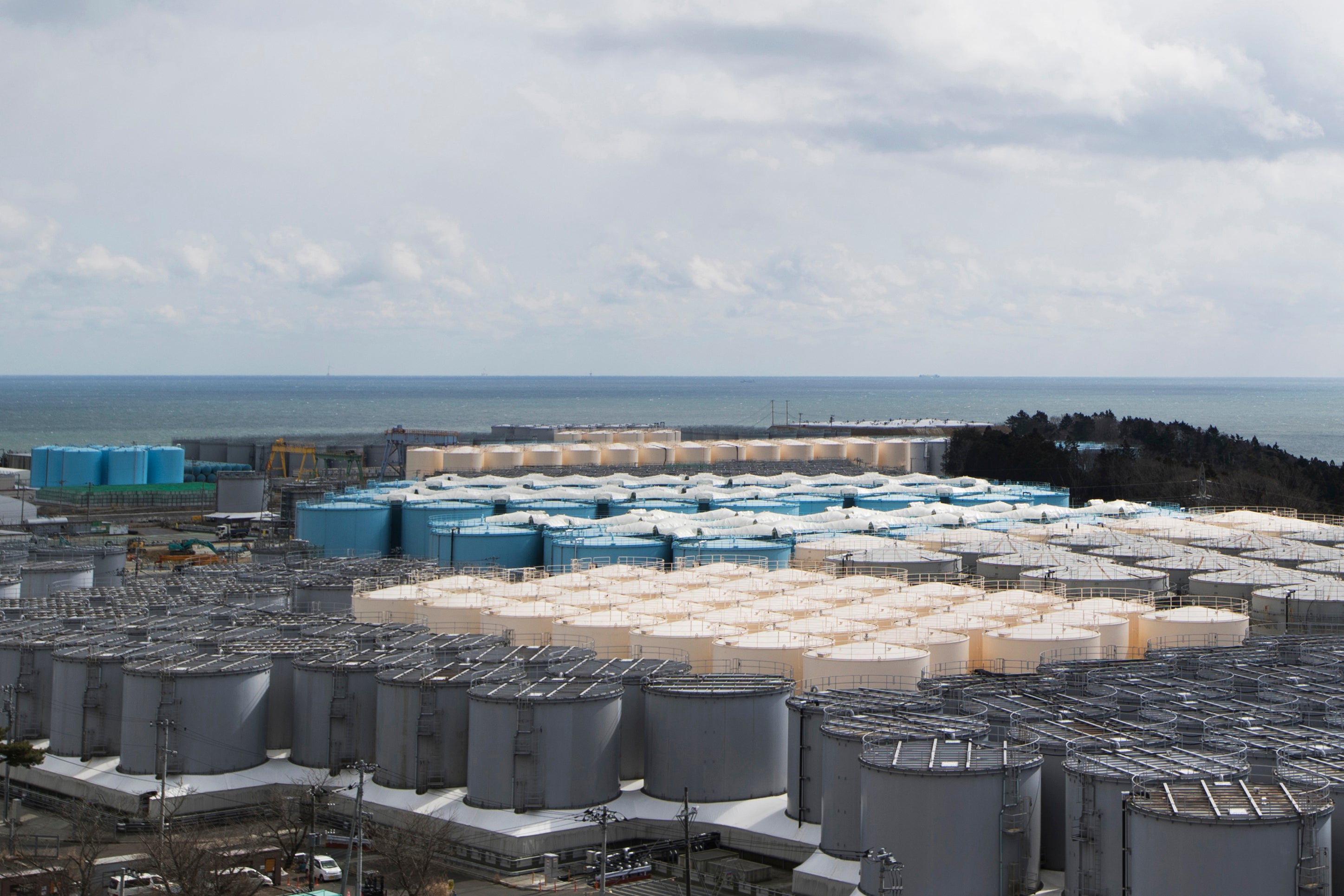Japan OKs preparation step for Fukushima plant water release
Japan’s nuclear regulator has approved methods and facilities for the release of treated radioactive wastewater from the wrecked Fukushima nuclear power plant into the sea next year

Your support helps us to tell the story
From reproductive rights to climate change to Big Tech, The Independent is on the ground when the story is developing. Whether it's investigating the financials of Elon Musk's pro-Trump PAC or producing our latest documentary, 'The A Word', which shines a light on the American women fighting for reproductive rights, we know how important it is to parse out the facts from the messaging.
At such a critical moment in US history, we need reporters on the ground. Your donation allows us to keep sending journalists to speak to both sides of the story.
The Independent is trusted by Americans across the entire political spectrum. And unlike many other quality news outlets, we choose not to lock Americans out of our reporting and analysis with paywalls. We believe quality journalism should be available to everyone, paid for by those who can afford it.
Your support makes all the difference.Japan’s nuclear regulator on Friday approved details of a planned release of treated radioactive wastewater from the wrecked Fukushima nuclear power plant into the sea next year.
The approval by the Nuclear Regulation Authority will enable Tokyo Electric Power Co. to start building necessary facilities ahead of the discharge. It came two months after a preliminary greenlight and a subsequent public review process.
Tokyo Electric Power Company Holdings submitted the plan in December based on a government decision last year to release the wastewater as a necessary step for the plant’s ongoing decommissioning.
A massive earthquake and tsunami in 2011 destroyed the Fukushima Daiichi plant’s cooling systems, causing triple meltdowns and the release of large amounts of radiation. Water that was used to cool the three damaged reactor cores, which remain highly radioactive, has since leaked into basements of the reactor buildings but was collected and stored in tanks.
Local fishing communities and neighboring countries have raised concerns about potential health hazards from the radioactive wastewater, which TEPCO and government officials say will be treated to levels far below releasable standards. They maintain that the environmental and health impacts will be negligible.
Japan nuclear authority chairman Toyoshi Fuketa told reporters Friday that the release plan had no major technical or safety issues. He said the regulators will ensure approved procedures are strictly followed with transparency.
The government and TEPCO say that of more than 60 isotopes selected for treatment, all but one, tritium, will be reduced to meet safety standards. Scientists say impacts of long-term, low-dose exposure to tritium for the environment and humans are still unknown. Tritium affects humans more when it is consumed in fish, they say.
The contaminated water is being stored in about 1,000 tanks at the damaged plant. Officials say they must be removed so that facilities can be built for its decommissioning. The tanks are expected to reach their capacity of 1.37 million tons next year.
TEPCO said it plans to transport treated and releasable water through a pipeline from the tanks to a coastal facility, where it will be diluted with seawater and then sent through an undersea tunnel with an outlet about 1 kilometer (0.6 mile) away to minimize the impact on local fishing and the environment.
The government and TEPCO still need to gain local consent for building the tunnel and other related facilities. They plan to begin gradually releasing the treated water in spring 2023.
Japan has sought help from the International Atomic Energy Agency to ensure the water release meets international safety standards and reassure local fishing and other communities and neighboring countries that have opposed the plan.
Experts from the IAEA visited the plant earlier this year and said Japan was taking appropriate steps for the planned discharge.
In a statement Friday, TEPCO pledged to sincerely respond to the IAEA reviews, ensure safety, provide data to the public and strengthen its radiation monitoring. The company also vowed to do its utmost to explain the water discharge plans and gain the public’s understanding about the decommissioning.